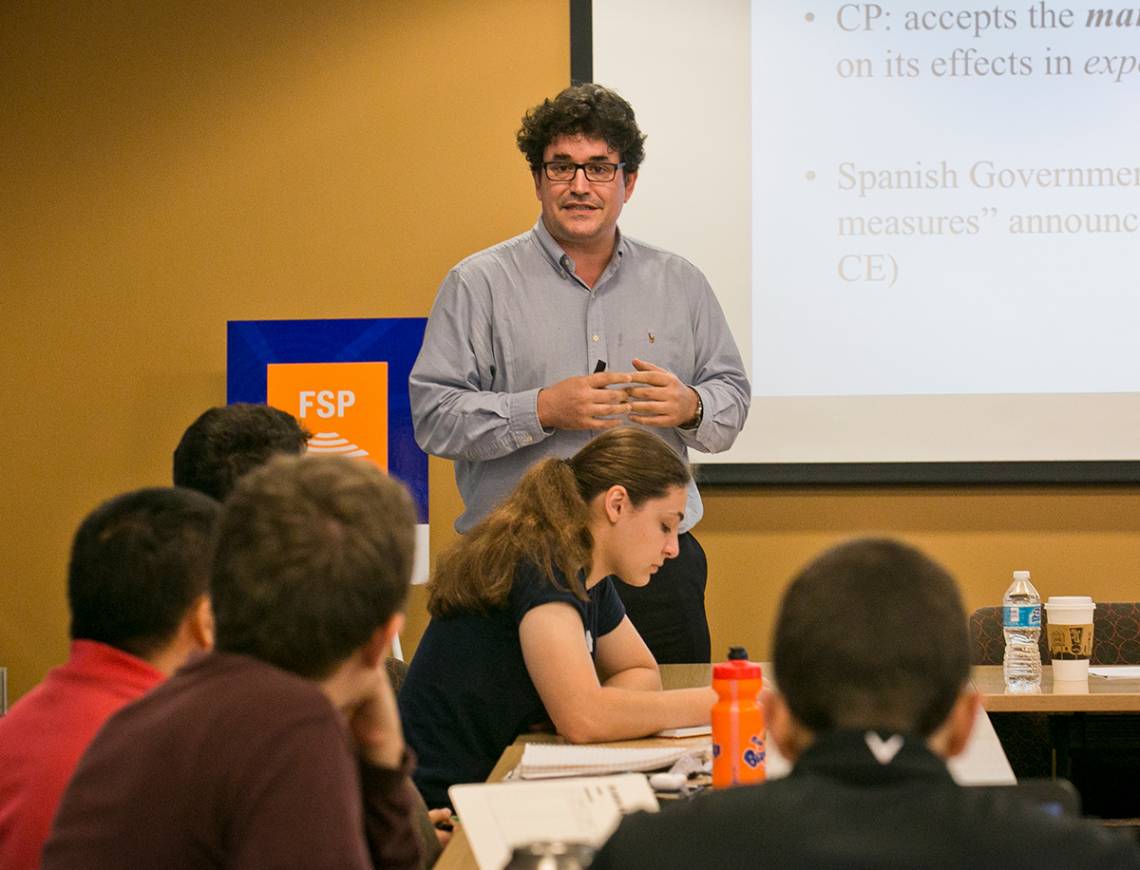Examining Catalonia’s Push for Independence From Spain
Discussion looks at causes, outcomes for Catalan, Spain, EU

Catalan separatists push for independence from Spain’s central government has been brewing for years and likely won’t be resolved any time soon, says a Duke professor.
“What we see here is a saturation effect,” said Pablo Beramendi, associate professor of political science, during a discussion Wednesday on Catalonia's independence referendum and the implications for Spain and the European Union.
The regional government of semi-autonomous Catalonia held an independence referendum Oct. 1. Catalan officials said 90 percent of ballots cast were in favor of independence and that about half of its registered voters cast ballots, NPR reported.
Spain has called the vote illegal and threatened to suspend Catalan’s autonomy.
“At this point the Spanish government is insisting on its permanent position, which is any move to challenge the constitutional status quo is illegal and it will be met with law and order and additional measures. There’s nothing more to talk about,” Beramendi told around 50 people who attended Wednesday’s event.
The talk was part of Observatory on Europe, a new program at the Duke Center for International & Global Studies (DUCIGS).
“They kept saying Oct. 1 is not going to happen. It happened … in horrible ways for Madrid,” Beramendi said.
He noted the images of police beating independence voters and Spain authorities’ attempts to block ballot stations, which were only successful at about 5 percent of stations, he said.
“It was a huge public relations blunder,” Beramendi added.
Catalonia officials more recently have pursued a “soft declaration of independence,” he said.
Catalonia President Carles Puigdemont halted the implementation of the declaration of independence he signed Tuesday so both governments could negotiate, the BBC reported.
Spain, meanwhile, gave the Catalonia leader five days to clarify the declaration, or face a takeover.
To the extent that the Spanish government shows patience and moderates its response, tensions in the pro-independence coalition are likely to exacerbate, Beramendi said.
More broadly, the European Union has called for dialogue and urged Catalonia leaders to back off from their call for independence.
“This is a political issue for the EU. We care about dialogue and we care about reconciliation,” said Antoine Ripoll, head of the European Parliament Liaison Office with U.S. Congress, who spoke Wednesday via Skype.
“Do we blow up everything or do we talk? We have to be careful not to break the whole thing,” Ripoll said.
He said independence supporters are not happy with what Madrid gives them so they’re taking a “me first” stand.
Leaving is an option, he said, “but it’s a nuclear option.”